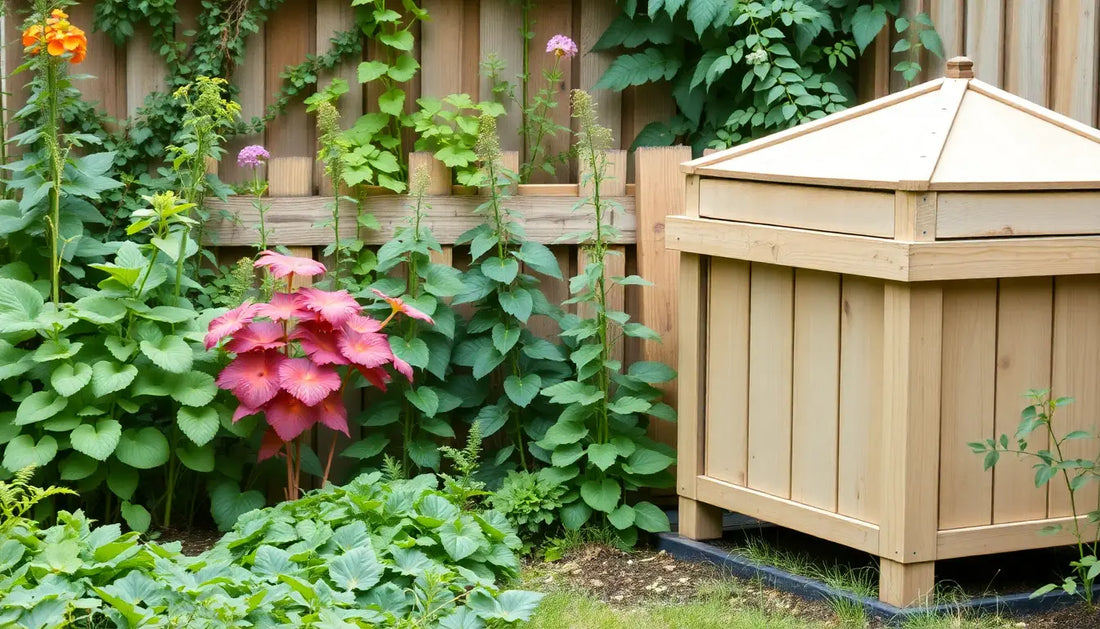
Essential Quick Tips for Sustainable Gardening
Share
Essential Quick Tips for Sustainable Gardening
Sustainable gardening is a rewarding way to grow your own food and create a healthier environment. Embracing sustainable practices helps you reduce your carbon footprint while enjoying the fruits of your labor. At Backyard Raise & Grow, we believe that anyone can benefit from sustainable gardening, whether you’re a beginner or a seasoned gardener. In this post, we will explore some essential quick tips for sustainable gardening that will set you on the right path toward self-sufficiency.
Understanding Sustainable Gardening
Sustainable gardening is all about growing plants in a way that conserves resources and promotes ecological balance. It focuses on using methods that do not harm the environment and improve the health of the ecosystem.
Benefits of Sustainable Gardening Practices
Adopting sustainable gardening practices brings numerous benefits. Not only does it have a positive environmental impact, but it can also provide economic advantages.
Environmental Impact: Sustainable gardening can help maintain biodiversity, improve air quality, and protect water resources. By using fewer chemicals and promoting healthy soil, you are contributing to a better planet.
Economic Benefits: Growing your own food through sustainable gardening can save you money while providing fresh, nutritious produce right from your backyard.
Quick Tips for Sustainable Gardening
When it comes to sustainable gardening, here are some quick tips to get you started.
Tip 1: Choose Native Plants
Start by selecting native plants for your garden. Native plants are adapted to your local climate, requiring less water and maintenance. They also provide essential habitats for local wildlife, including pollinators like bees and butterflies.
Tip 2: Use Organic Gardening Tips
Adopting organic gardening tips is crucial for maintaining a healthy garden and environment.
Importance of Organic Methods: Organic gardening avoids synthetic chemicals, promoting safe and natural gardening practices. This approach helps you grow food that is free from harmful pesticides and fertilizers.
Common Organic Gardening Practices: Techniques such as crop rotation, intercropping, and using natural fertilizers can enhance soil health and plant growth.
The Seasonal Planting Guide
Understanding when to plant is vital for sustainable gardening. Seasonal planting can greatly affect your garden’s success.
Importance of Planting Seasonally
Planting crops according to the season optimizes growth and reduces the need for artificial interventions.
What to Plant in Spring vs. Fall
When planning your garden layout, consider what to plant during each season.
Recommended Crops for Spring: Cool-season vegetables like lettuce, peas, and spinach thrive in the spring.
Recommended Crops for Fall: As temperatures drop, root vegetables such as carrots, beets, and turnips perform well.
Planning your garden layout according to the seasons ensures that your plants flourish and yield plenty of produce.
Composting Techniques
Composting is an essential practice in sustainable gardening, turning kitchen scraps and yard waste into nutrient-rich soil.
What is Composting and Its Benefits
Composting reduces waste while enriching your garden soil, fostering healthy plant growth.
How to Start Composting at Home
Starting a compost bin at home is simple and beneficial. Here’s how:
Types of Composting Methods: You can choose from methods like traditional composting, vermicomposting (using worms), or Bokashi composting.
What Materials to Include in Your Compost: Include a mix of green materials (like fruit scraps) and brown materials (like dried leaves) for a well-balanced compost.
Pest Management in Gardens
Pest management is key to maintaining a healthy garden ecosystem.
Importance of Pest Management in Sustainable Gardening
Effective pest management ensures that your plants thrive without the overuse of chemicals that can harm the environment.
Natural Pest Control Methods
Consider using natural pest control methods to keep harmful pests at bay.
Companion Planting: This involves planting certain plants together to deter pests. For example, marigolds repel nematodes and enhance the growth of nearby vegetables.
DIY Pest Repellents: Simple solutions like soapy water or neem oil can effectively control common garden pests.
Maintaining Your Garden Sustainably
To keep your garden flourishing, focus on sustainable maintenance practices.
Water Conservation Tips
Implement water-saving techniques like drip irrigation or rain barrels to sustainably manage your garden’s water needs.
Soil Health and Maintenance
Healthy soil is the foundation of a successful garden.
Mulching Techniques: Applying mulch helps retain moisture, suppress weeds, and enrich the soil as it decomposes.
Fertilizing Organically: Use organic fertilizers like compost or aged manure to nourish your plants without harmful chemicals.
Conclusion
In summary, these essential quick tips for sustainable gardening can help you cultivate a flourishing garden while minimizing your environmental impact. By choosing native plants, following organic practices, composting, managing pests naturally, and maintaining your garden sustainably, you can embark on a rewarding gardening journey. Start today with Backyard Raise & Grow, and watch your garden thrive!














